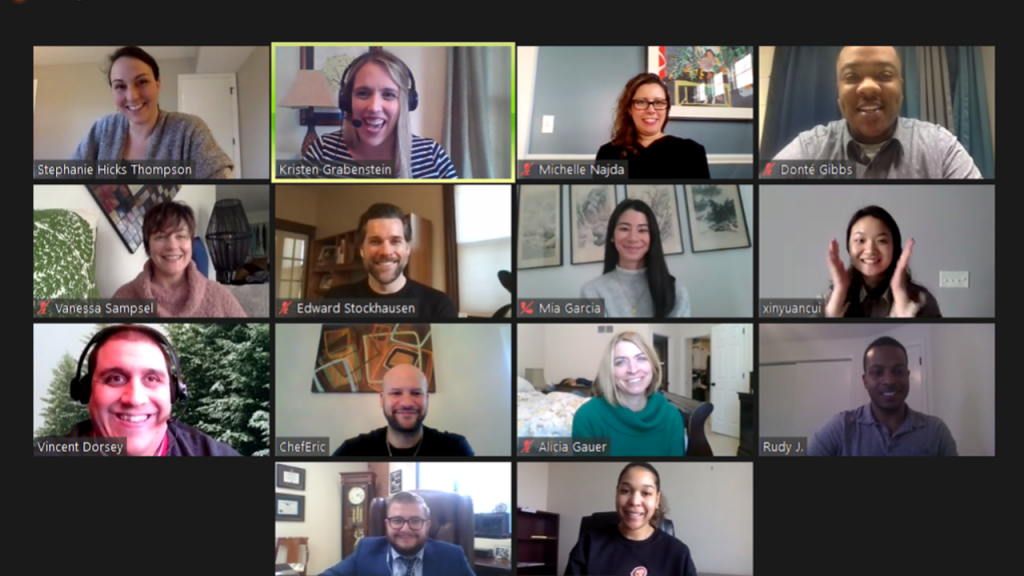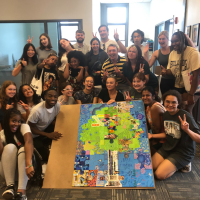Presented by the Cleveland Foundation’s Center for Philanthropy, Foundations for Philanthropy is an interactive cohort experience designed to launch emerging leaders into lifelong charitable giving. Supporting a pipeline of diverse, rising philanthropists, the program shares the critical skills and strategies necessary to leverage time, talent and treasure into meaningful impact for Greater Cleveland, the nation and the world. In this blog, 2021 Foundations for Philanthropy cohort member Mia Garcia reflects on her experience in the program and her approach to philanthropy.
Can you tell us a bit about your background and how you first learned about the Cleveland Foundation?
I can’t remember exactly how I learned of the Cleveland Foundation, but it has always stood out to me that it is the world’s first community foundation. As a transplant from San Francisco nine years ago and as an estate planning attorney, having an organization like the Cleveland Foundation making a significant impact both broadly and locally has been a special source of pride.
Why did you initially decide to participate in Foundations for Philanthropy (FFP)?
There are a lot of ways for young professionals in Cleveland to get involved in the community, but FFP seemed like a unique program in that the participants conduct an actual, real-life grantmaking process. Beyond learning about civic issues, FFP provided an opportunity to take a more active role by facilitating the creation of a strategic mission and allowing us to make funding decisions together that would have an immediate impact.
Is there something new or surprising that you learned through your participation in FFP?
I learned that philanthropy means much more than donating. Philanthropy is a method of connection that allows us to be a part of something greater than ourselves and helps us feel a sense of purpose attached to something beyond our own immediate self-interests. Regardless of resources, it is never too early to begin thinking about your impact and legacy.
What did your FFP cohort decide to focus on and why? Can you talk a bit about the journey you shared as a cohort?
Our cohort was made up of a wonderfully diverse group of people with different passions, experiences, and perspectives. The program helped us identify our personal missions and core beliefs and build a consensus around our common values. The process required us to bring our whole selves to each session, create an environment that encourages authenticity and strong opinions, and engage in active listening. Many of our conversations were rooted in gratitude and recognizing the sacrifices and generosity of others that helped us get where we are. We created a shared mission to support programs focused on economic literacy and leadership development for young adults to create sustainable self-sufficiency and generational success.
What do you feel was the most valuable part of your FFP experience?
The most valuable part was having to make decisions together as a group. Doing so demonstrated the importance of being present and actively participating by sharing, truth-telling, and welcoming disagreement. Through that process we opened ourselves and allowed others to influence us and shift our perspectives.
Why would you recommend FFP to someone else?
I would recommend FFP for anyone with a desire to get involved in and give back to the community, especially if you don’t know where to start or are wondering, “What will I bring to the table?” The only prerequisites are to show up and be present, and in return you will gain a clearer sense of self and become connected to other individuals who also want to make a difference.
To learn more about Foundations for Philanthropy, please visit www.ClevelandFoundation.org/Foundations.



